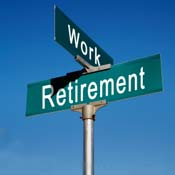You Say You Want to Work Past ‘Retirement’? How’s Your Health?

The top retirement planning strategy today is not to retire. Now that many are living longer and fearing the realistic risk of outliving their retirement savings, many people over 50 years old have simply said they plan to work past their ‘retirement age’. Global insurer Aviva reports that working longer as a strategy to hedge against longevity is increasingly popular throughout the world. The vast majority of middle-aged Americans now plan to work longer, nearly half of Irish report they plan to work longer and four in ten people in Spain and Poland plan on extending the daily grind into their ‘retirement years’.
Sounds logical, working longer has personal benefits, most notably an extended income stream, continued access to valuable benefits, e.g., insurance, not to mention it continues to give you a reason to ‘get up in the morning’. Extended work life certainly offers public benefits too, additional tax revenues to support already depressed government balance sheets and a reduction in the rising tide of pension payouts. But – a big but, there is an underlying assumption – will you be healthy enough to work longer?
Two entirely separate and interesting pieces of news from the United Kingdom were published last week. The first article reported that a significant portion of the British workforce planned to stay in the workforce well beyond retirement age. The UPI story reported the results of a UK national survey showing that early retirement is out for many and that the priority in older age is keeping up with expenses – and that means working longer. Many middle-aged Britons plan on working at least until they are 71 years old while another segment representing an estimated 12% of the UK workforce suggested they did not know when to retire compared to about 10% who said they did not have plans to ever retire.
Now the second story – Middle-age Britons most unhealthy in the world – reported the results of another survey sponsored by Bupa, the UK-based private health insurer. The survey examined the health and lifestyle of middle-aged people in 12 countries. Not to disappoint the foreshadowing of a rather dour title, the UK results revealed that the 2000 middle-age Britons that responded were in worse shape than their same cohort in Australia, Brazil, China, Hong Kong, India, Mexico, New Zealand, Saudi Arabia, Spain, Thailand and the United States. Here are some of the highlights reported by UPI:
While the UPI story focuses on the UK population. No nation can afford to be health smug. Obesity is epidemic in the United States and growing throughout Europe. Even those southern Europeans that enjoy the longevity-giving powers of the ‘Mediterranean diet’, e.g., Greece, have among the highest smoking rates in the world. Diabetes is no longer just for industrialized nations, it is an increasing challenge for India and China.
These two stories are independent in reporting and reflect how society tends to think about health policy and retirement policy in an aging society. We look at pensions and retirement planning as one set of problems and the cost of health as another – a failure in systems thinking in a systems world.
Health and wealth in an aging world are intimately entwined. Not just in terms of costs to family and public coffers, but the capacity to work longer requires the physical (and cognitive) capacity to work longer. For example, addressing the virtual plagues of diabetes, hypertension and other diseases that have strong behavioral components that contribute to their onset or successful management is critical to everyone. From individuals who wish to work longer, to companies who want optimal productivity and limited health-related expenses, to governments looking to affect the slope line of future healthcare costs in an aging society.
Retirement planning and being ‘age-ready’ requires new thinking and positive action:





